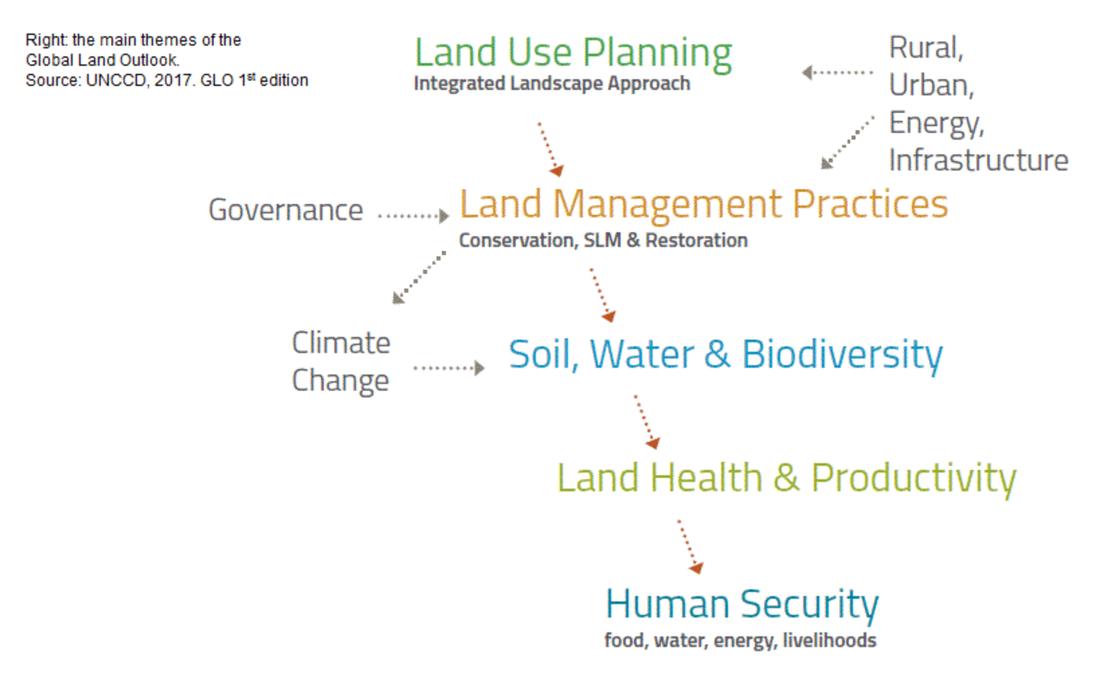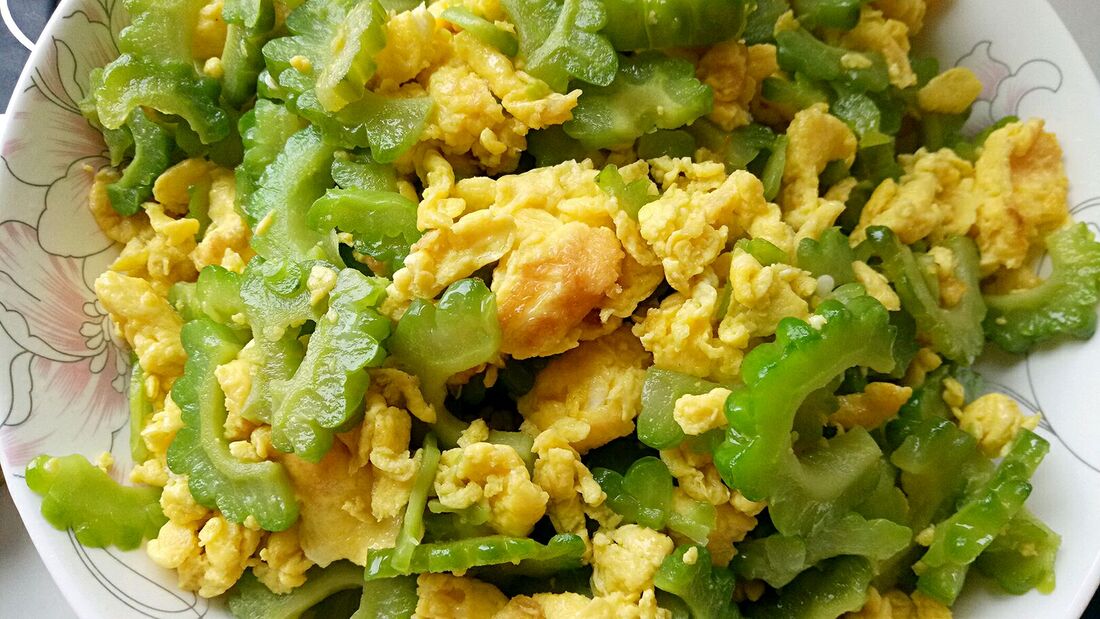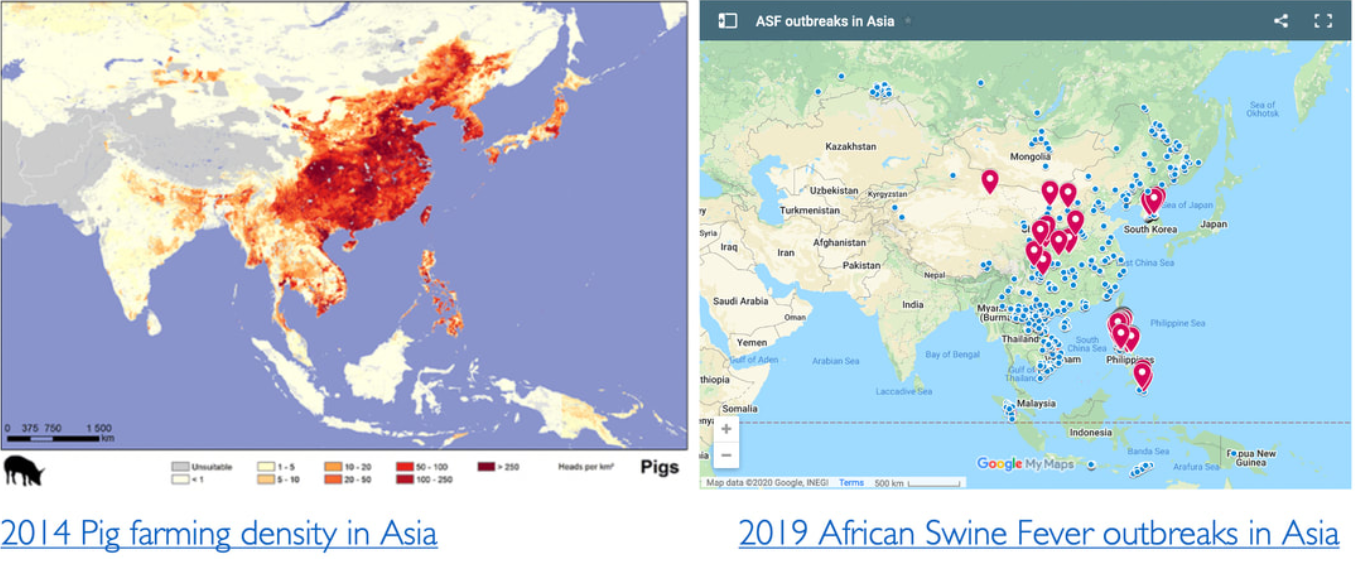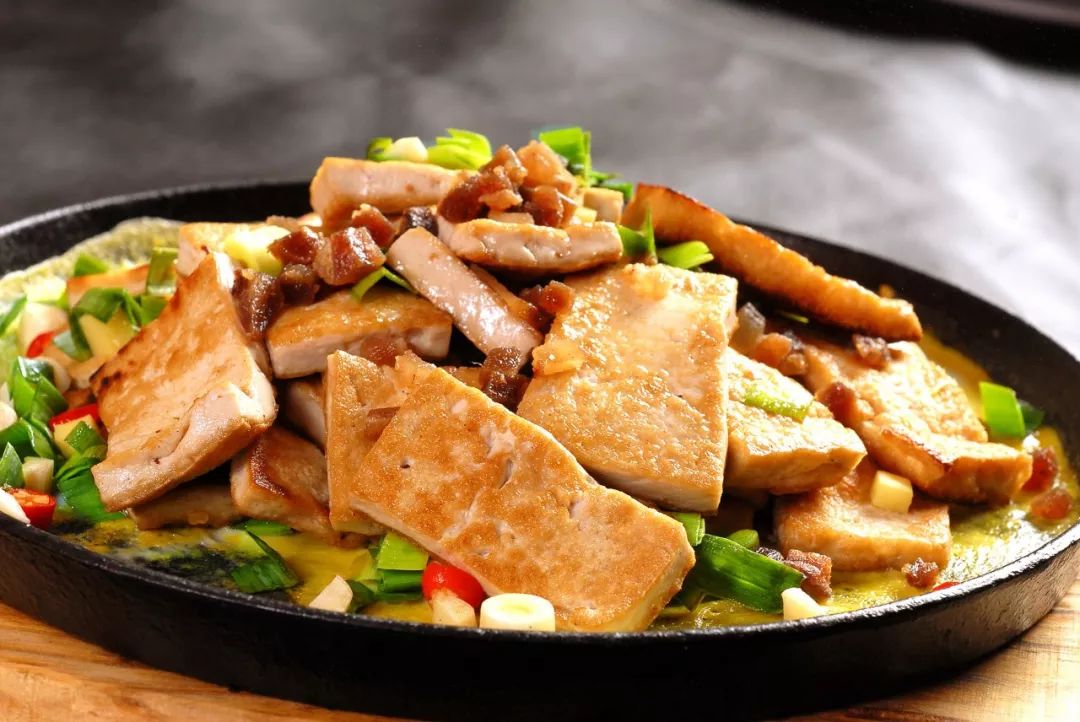While I was bored in my Chinese classes which I soon abandoned, I was inspired in our neighborhood restaurants, where I copied laminated menus and quizzed the owners of small food stalls about the ingredients and the meaning of each dish. Food was without doubt my entry ticket to a culture which is now closer to me than what I used to call home.
Watching a Tree to Catch a Hare became the entry point to a much larger topic of how food, culture, individual and societal health are interconnected. I readily learned from my Chinese relatives which 'cold' food like bitter gourd (see picture below 苦瓜烧鸡蛋) should be eaten during hot summer days, and which 'hot' food like ginger should be eaten during cold winter months.
A surge in diabetes, obesity and many other nutrition related diseases reveals that Chinese society follows despite its rather recent agrarian roots a similar trajectory as affluent Western economies. The findings of the China-Cornell-Oxford Project, which was conducted in the 1980s and turned by biochemist Colin Campbell into a bestselling book on nutrition have been largely ignored.
Campbell concludes that people who eat a predominantly whole-food, vegan diet and reduce their intake of processed foods and refined carbohydrates—will escape, reduce, or reverse the development of numerous diseases. Who would have thought that the science of health and nutrition receives tailwind from a Chinese government which has set its sails towards Sakoku, the island of isolationist policies?
The shift towards plant-based foods might also impact the epidemiological future of animal born and human contracted viruses like Covid-19, since there are indications that the intensive and economy of scale husbandry farming techniques practiced in China are a direct cause for the increase in pandemic diseases.
Whether plant-based high-tech foods reduce the dependence on large corporations remains to be seen. A world in which industrial agriculture produces ingredients which are healthy for planet and people is however to be preferred over the system which we have inherited from US capitalism and which has been the subject of numerous documentaries like Forks over Knives, Planeat, Food Inc. or Fed Up.
So, go CCP, go! 加油共产党!
- Watching a Tree to Catch a Hare
- China-Cornell-Oxford Project
- The China Study
- Ministry of Agriculture on 14th Five Year Plan
- South China Morning Post on 14th Five Year Plan
- China’s 5 Year Plan Includes Plant-Based Eggs, Cultured Meat. Why that’s a big deal?
- On the Metaphysics of a Plague: Why intensive live stock farming is the source of Covid-19
- Can China feed itself? Study
- Forks Over Knives documentary
- Planeat documentary
- Food Inc. documentary
- Fed Up documentary
- UN Global Land Outlook Report 2017






 RSS Feed
RSS Feed